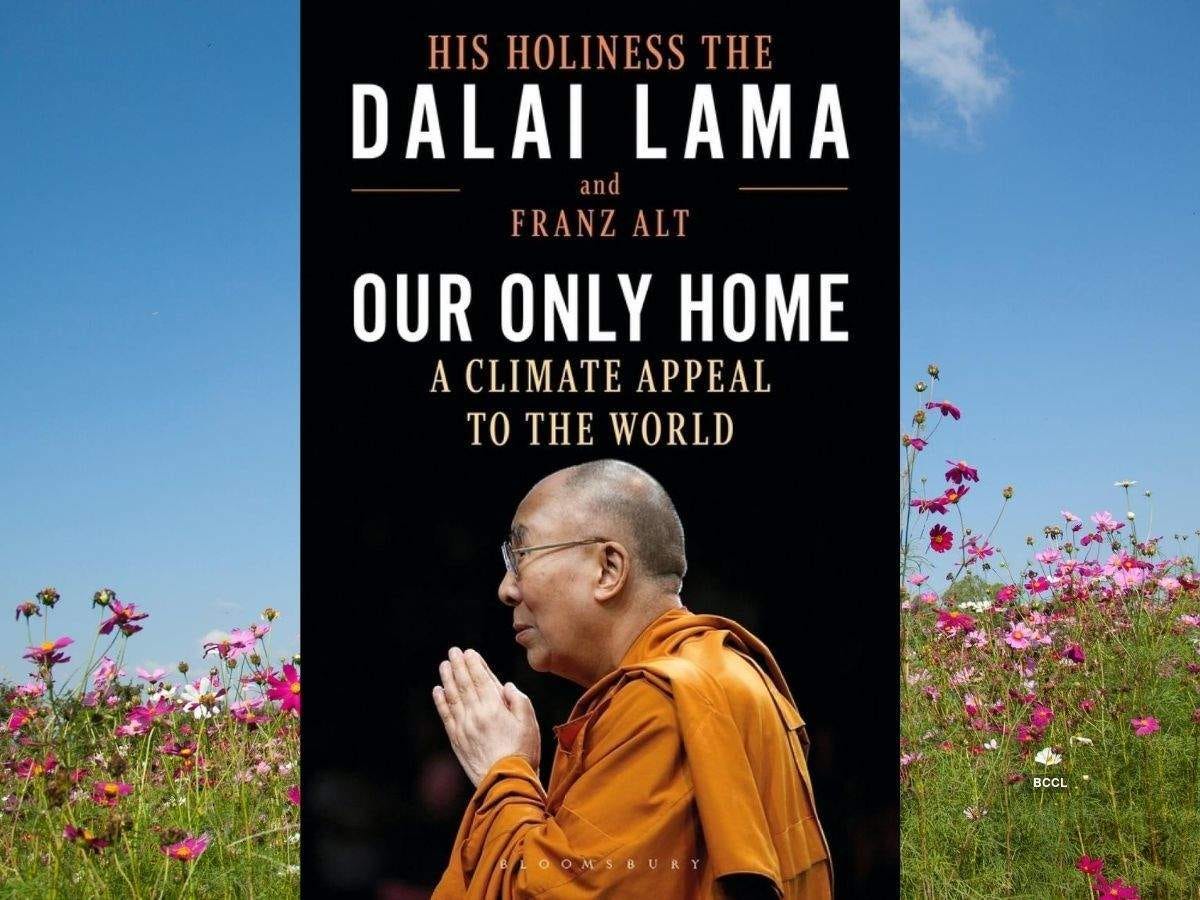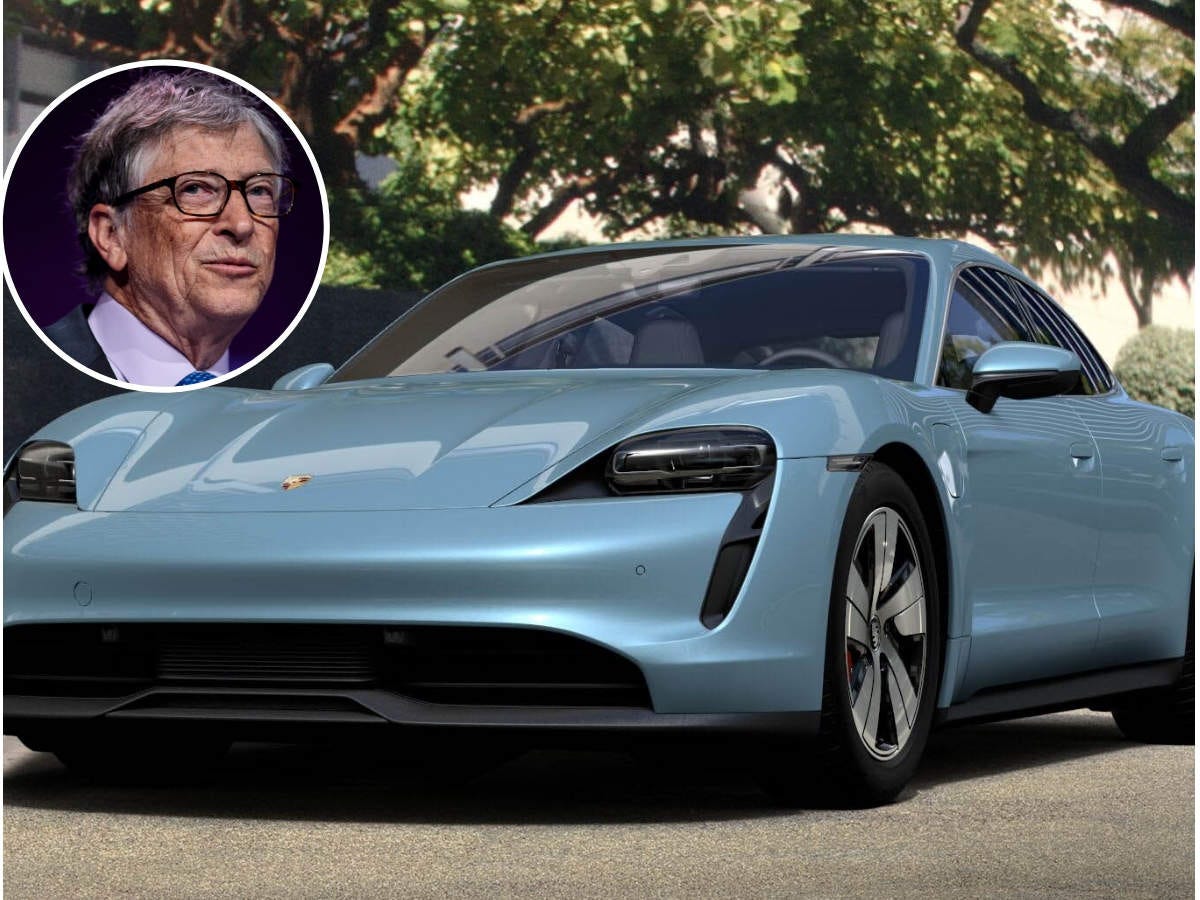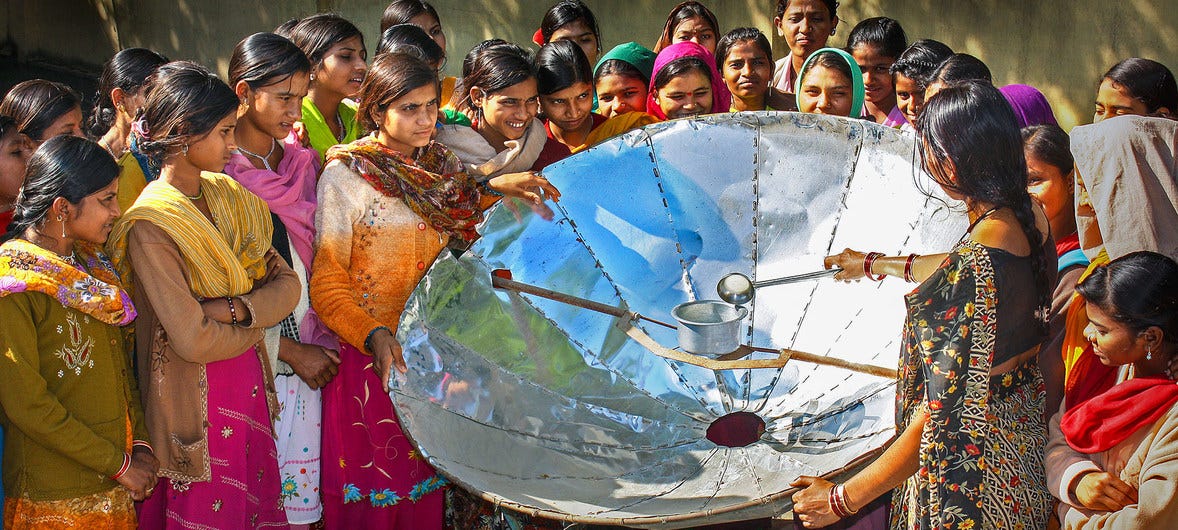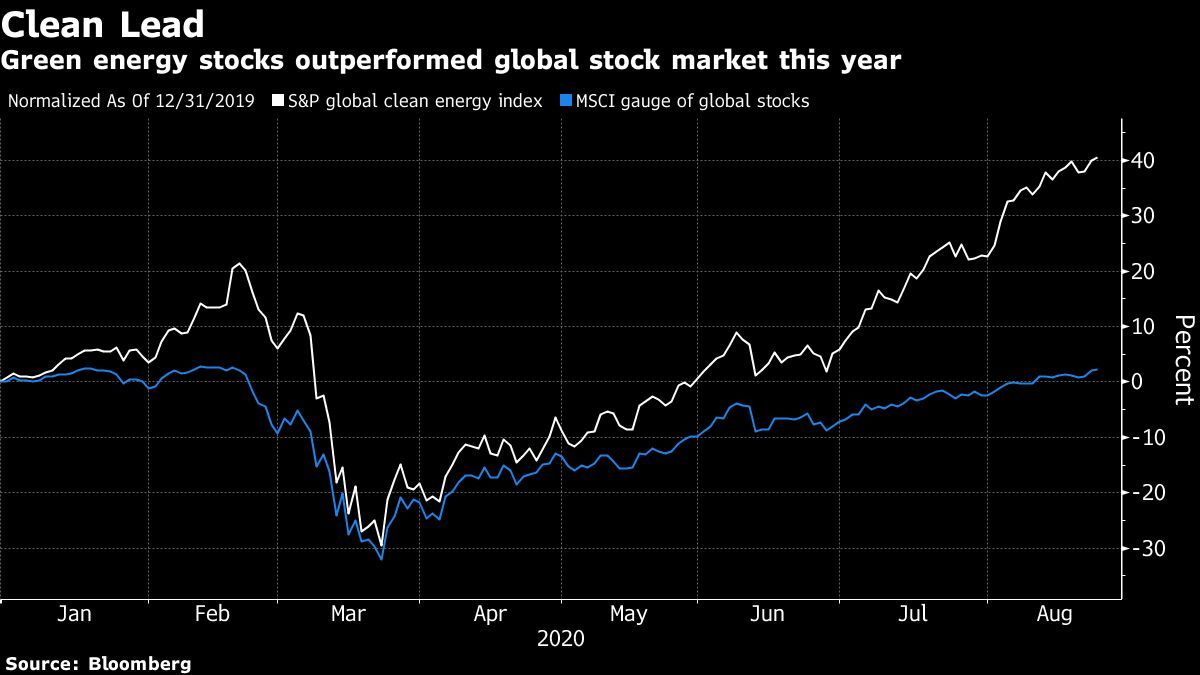The Dalai Lama's climate appeal, Bill Gates talks zero carbon mobility and can India quit coal?
The newsletter for independent thinkers on carbon and climate.

(source: Times of India)
BOOK
Our Only Home: A Climate Appeal to the World
His Holiness, the Dalai Lama has written a book on climate change which he will be releasing this year. The 14th Dalai Lama is the spiritual leader of Tibetan Buddhists.
His upcoming book is titled, 'Our Only Home: A Climate Appeal to the World' and has been co-written with German environmental journalist Franz Alt. According to the description, "In this inspiring new book, the Dalai Lama, one of the most influential figures of our time, calls on political decision-makers to finally fight against deadlock and ignorance on this issue. He argues that we all need to stand up for a different and more climate-friendly world, and to allow the younger generation to assert their right to regain their future."
Jim Martin, commissioning editor at Bloomsbury Sigma commented, "As we slowly emerge blinking from the torment of the Coronavirus epidemic, we need to focus our efforts on the existential challenge of climate change. In this book, the Dalai Lama shares his vision for how change can happen. The world needs to hear and heed his words."
'Our Only Home' will release in November 2020.
Creed Comments: This will be an interesting book for many reasons. The growing pantheon of “spiritual leaders” (e.g., Pope Francis) writing about climate change is a telling sign that the issue is gaining mainstream traction. If the Dalai Lama’s message is effective in moving leaders to take bold action on carbon and climate, the book will have accomplished its purpose.
Issue No. 41 - August 30, 2020
Welcome to the latest issue of Carbon Creed - a curated newsletter for people “woke” on carbon and climate.
My name is Walter McLeod, and I appreciate your time and interest. We hope to hear from you as we navigate this weekly journey through the good, bad and ugly of carbon and climate. Thanks for indulging my down-time at the beach - it was exhilarating.
This week we witnessed a stunning change in the U.S. energy markets. After 92 years, ExxonMobile was replaced in the Dow Jones 30 Industrial Index by technology company Salesfore.com. The change leaves fellow oil major Chevron as the only oil and gas company in the Dow. This is yet another sign that the low carbon economy is here to stay.
In THIS ISSUE , we examine the financial performance of the clean tech sector relative to the ESG sector and the overall market. We also take a hard look at the pros and cons of India’s clean energy future - can they break the coal habit? Bill Gates has a new post on the merits (and challenges) of zero carbon transportation. And finally, we take a peak at the Dalai Lama’s upcoming climate book. We hope you enjoy the menu!
Feel free to ping me anytime at mcleodwl@carboncreed.com.
If you are a subscriber, THANK YOU, and please share this with a friend.
Now, LET’S GO DEEP!
INSIGHTS

(source: The Economic Times)
Bill Gates opines on the road to zero carbon transportation
With fewer people on the move during the pandemic, Bill Gates is taking the time to think about better ways to get around when we can again. Specifically, in a recent GatesNotes he posits his thoughts on electric vehicles and alternative fuels that could help address a more dire crisis than COVID: climate change.
He starts with the question and answer: “So, how exactly do we fuel our need to move around without emitting greenhouse gases? The answer is simple, even if making it happen won’t be: use clean electricity to run all the vehicles we can, and get cheap alternative fuels for everything else.”
Let’s start with electrification. The good news is that we’ve made lots of progress on electric vehicles (EVs). Unlike many of the green alternatives, you can go out and buy one right now if you want. The batteries that power them have seen an 85 percent price drop since 2010, so they’re getting more affordable to purchase.
EVs excel at short-haul travel: personal cars and even medium-duty vehicles, like city buses and garbage trucks. But electrification isn’t an option for many other types of transportation. The problem is that batteries are big and heavy. Electricity works when you need to cover short distances, but we need a different solution for heavy, long-haul vehicles.
This is where cheap alternative fuels come in, such as biofuels, which many people have heard of, and electrofuels, a very expensive option that uses electricity to combine the hydrogen molecules in water with the carbon in carbon dioxide, creating a liquid fuel that works in existing engines.
Gates concludes by noting how inspired he is by the progress made so far, but acknowledging that we have a long road ahead of us. To prevent the worst effects of climate change, we need to get to zero net greenhouse gas emissions in every sector of the economy within 50 years. Go deeper here LINK
Creed Comments: I agree with most of what Gates writes in this post. Mr. Gates is right when he states “these technologies need to get much cheaper than they are today. That means finding ways to manufacture them at scale and making sure they perform comparably to their fossil fuel counterparts.” I also agree with him on alternative fuels - especially for airplanes and spacecrafts (yes, I said it). Biofuels may be a short-term solution, but i would wager on electro-fuels and other hydrogen fuel cell technologies long term. I’m sure Mr. Gates has invested in them all.
GOVERNMENTS

(source: UNDP India)
UN Chief urges India to lead global clean energy shift away from coal
In a pointed message to Indian Prime Minister Narendra Modi, UN secretary general António Guterres said scaling up solar energy would help solve two of India’s key development priorities: alleviating poverty and bringing power to 64 million Indians still lacking energy access.
Speaking at Delhi-based The Energy and Resources Institute (Teri), Guterres said ongoing support for fossil fuels around the world was “deeply troubling”. India is subsidising fossil fuels seven times as much as clean energy.
Modi recently launched an auction of 41 coal mining blocks to private investors. The prime minister said this would create hundreds of thousands of jobs at a time of economic fallout from Covid-19 and reduce India’s dependence on imported coal.
But Guterres warned rising temperatures caused by emissions from coal and other fossil fuels, would see India endure more intense heatwaves, floods and droughts, increased water stress and reduced food production if global warming edged over 1.5C by the end of the century.
“This strategy will only lead to further economic contraction and damaging health consequences. It is, simply put, a human disaster and bad economics,” he said. “Clean energy and closing the energy access gap are good business. They are the ticket to growth and prosperity.”
Guterres, who has championed a green recovery to the pandemic, has become increasingly direct in his climate rhetoric. He is demanding the world’s largest economies, known as the G20, end fossil fuel subsidies, put a price on carbon pollution and commit not to build any new coal power plants or mines after 2020.
However, few leaders are listening. Since the start of the pandemic, G20 countries have pledged $204 billion of support to fossil fuels. That is 52% of all public money committed to the energy sector, compared with 35% for clean energy, according the Energy Policy Tracker.
India, the world’s third largest emitter, has committed $8.9bn to fossil fuels, $6.8bn of it to coal, compared with $1.2bn for clean energy. Go deeper here LINK
Creed Comments: While investments in renewable energy would generate create healthier and higher quality jobs, they are not a ready alternative for the estimated 500,000 coal miners in India, according to Swati Dsouza, a New Delhi-based energy consultant. Rather than another lecture, perhaps the UN could partner with the IMF and World Bank to create a global carbon infrastructure fund, focused on all key carbon emitting sectors (power, transportation, construction, agriculture, and technology.) This investment would create thousands of jobs and avoid the more expensive, recurring costs of climate reconstruction.
SUSTAINBLE INVESTMENTS

(source: Bloomberg)
Why “pure play” clean tech is blowing away ESG investing
This year’s rally in exchange-traded funds specializing in clean tech is leaving larger peers in the environmental, social and governance (ESG) sector far behind.
One example is the $1.2 billion Invesco Solar ETF’s 75% jump this year, which exceeds the 9% climb in the $8.6 billion iShares ESG Aware MSCI USA ETF, the biggest such fund in the ESG space. The S&P Global Clean Energy Index has climbed 41% this year, compared with an advance of 2% in a global stock market gauge.
A range of factors have been cited for the clean-tech rally, including greater investor pressure to pursue ESG themes, maturing wind and solar industries that demonstrated resiliency after the collapse in oil prices earlier this year, as well as the prospect of huge government spending on green projects.
“An S&P 500 ESG versus the niche clean energy ETF, you are still going to see very significant differences in ESG style and therefore outcome in performance and composition, as well in terms of securities,” said Cathrine de Coninck-Lopez, global head of ESG with Invesco.
The iShares ESG Aware MSCI USA’s top holdings are familiar names Apple Inc. and Microsoft Corp. Invesco Solar’s biggest investments, like SolarEdge Technologies Inc. and Sunrun Inc., have more than doubled year-to-date, well ahead of the tech giants.
ESG ETFs have attracted more than $35 billion of net inflows so far in 2020, and assets across all types of ESG funds topped $1 trillion for the first time last quarter, a Morningstar Inc. report shows. Go deeper here LINK
Creed Comments: A year ago, who’d have thought we’d be debating whether ESG or clean tech would outperform the market? Well, they both have - and the economy will be stronger because of it. So now we look deeper at the numbers and find that clean tech is outperforming ESG - not really surprising, given my previous observation that “S” is much harder to accomplish than “E”, though no less worthy. My take: diversify, invest in both styles.
RESOURCES
The Keeling Curve a daily record of global atmospheric CO2 concentration.
Congressional Policy Tracker a summary of current federal energy legislation.
Click Clean your favorite apps and tech company clean power rankings.
Advancing Inclusion Through Clean Energy Jobs a report by the Brookings Institute.
Understanding ESG a series of ESG-focused thought leadership webinars for business and investors, presented by Baker McKenzie.
Thanks for sharing your time with us!
If you enjoyed this newsletter but aren’t yet subscribed, sign up for a free subscription below.
If you are a subscriber, THANK YOU AGAIN, and please forward this to a friend.
👋 Questions, comments, advice? Send me an email!




While all of the efforts of the new administration are admirable. The real issue with energy efficiency and carbon reduction efforts fail when those in charge have neither technical backgrounds or a basic understanding of human behavior. I personally believe that all of our initial efforts should be in modifying personal behaviors and increasing the energy efficiency of the systems we currently have. We could reach at least half of our goals if we just focused on one segment of the problem at a time. Namely; Air conditioners! With our global warming and skewed seasonal weather patterns....the fastest growing segment in our economy is heating and cooling. If we reduced the amount of energy to cool using our current HVAC technologies (which haven't changed since 1909) we could prove to everyone that if we focused we can make a difference incrementally. I have personally reduced over 15,000 energy profiles in cooling systems over the last 10 years. If consumers can realize the savings, feel the personal comfort and realize that doing the "right thing" is a win, win, win....then maybe we can continue to improve incrementally!
Global society is at an inflection point. How do we raise the standard of living for the billions who are not living in houses with hot and cold running water? How do we rethink energy generation and development? The challenges in front of us demand all of us.